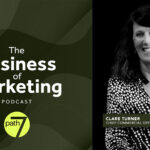By Jake Goodman, Managing Partner, Leagas Delaney
I remember an old creative director asking me what I thought my job was. Our answers met in mid-air: ‘Looking after the client’s needs’ / ‘SELLING THE WORK’. Many years later, I stand closer to my original answer, but there’s a lot wrong with both.
Both talk to a tension that shouldn’t really exist – the needs of ‘the client’ versus the needs of ‘the agency’. With the tools of our trade putting more pace and power in the hands of both (pull up a chair, ChatGPT and creative automation), I’d like to make a case for aiming higher. Like industrial revolutions that have preceded us, we have a chance to scale up and skill up. After all, when a client can shortlist their new brand icon based on AI recommendation, what IS the job for the advertising industry? And what are the skills that will help us not just survive, but thrive?
Know your value
Not all time is equal. True, it turns out, of black holes and advertising (no jokes, please). Even with the most progressive tactics of renumeration, base calculations tend to come down to anticipated number of hours worked. An hour of an Account Director is always billed as an hour, no matter what job they are doing.
And yet. If I’ve learnt anything, marketing teams do not mind paying for the services they require, but like any sensible person, they don’t want to pay for things that they can do themselves, get cheaper, or don’t see the value in.
As an industry, we can get caught in value limitation – cycles of admin and information, rather than thinking and acting. The time spent getting to an answer to a client’s challenge is practically invaluable. Yet too often this time is tens of hours less than that spent rolling out a campaign across all touchpoints, shapes and sizes.
Know where you are at your most valuable. And constantly look for new ways to automate and streamline the things that stop you spending all your time there.
Intuit then evidence
Bill Nye, the science guy, once did a brilliantly simple speech on the power on connection – ‘everyone you ever meet knows something you don’t’. Look it up sometime. Like ‘Wear sunscreen’ (DEFINITELY look that up), it is both simple and impactful. It talks to many a truth, but certainly one of the most valuable ones we have as practitioners: unique experience twinned with curiosity. The ability of the ‘magpie’ mind to make connections that seemingly confound logic, but come from deep learned experience and mental agility. The experienced practitioner can get to an answer quickly, and one no-one else would arrive at.
That’s the value of an external partner – they’ve seen and learnt things it takes years to be exposed to outside of an organisation. They are able to make decisions on incomplete information, and elegantly pivot that thinking if data suggests a change of direction.
It’s good to talk, better to listen
Successful marketing cannot exist in a vacuum – it requires discussion and problem solving. Whilst some advances in technology have conferred new ways to actually avoid talking (WhatsApp rather than a phone call, sharing task lists rather than going al-desko), knowing its value is critical to what we do. Sometimes a project requires conversation to accelerate it. It’s good to talk, but it’s the listening part that’s the superpower; something a machine will struggle to mimic – asking, probing, seeking understanding.
It’s no surprise that some of the most trusted practitioners are excellent listeners, rather than simply ‘talkers’. They’re the ones who adapt, learn and find different approaches.
Never NEVER respect the job description
“When a machine comes for your job, take someone else’s”, said no-one ever. And yet, advertising is built on the success of people taking on wider job descriptions. This is less about petty job description theft, and more about constant upskilling – learning new skills, as adjacent as you want, as varied as you need. So, you can be a trusted counsel who represents the entire discipline of advertising, not just your tranche of it. Those who can ‘do a Columbo’ and offer one more thing will surely inherit the earth, or at least the trust of those they work with.
Appreciate your clients’ problems as your own
One of my favourite campaigns was done for Nationwide by a certain Tim Delaney: ‘We always remember whose money it is’. Insightful. Ironically fresh, given how obvious a statement it is. And this is perhaps a perennial north star. As advertisers, we are agents of the brands we work with. It’s their business. Their brand. We are merely custodians for a while – and should be relentlessly focussed on leaving it in a better state than when we found it. Saying to ourselves ‘we always remember whose problem we’re solving’.
Were that creative director to ask me again, my answer would be firmer: ‘Getting to the kind of work that actually makes a difference to their business, by any means I have available’. Making the most of advertising’s unique set of cognitive skills, ensuring we spend more time utilising them, embracing the potential of technology and transformation, but amongst it all, always remembering whose business we’re out there to help. After all, to be human is to care deeply. And that’s something AI will always struggle to replicate.






